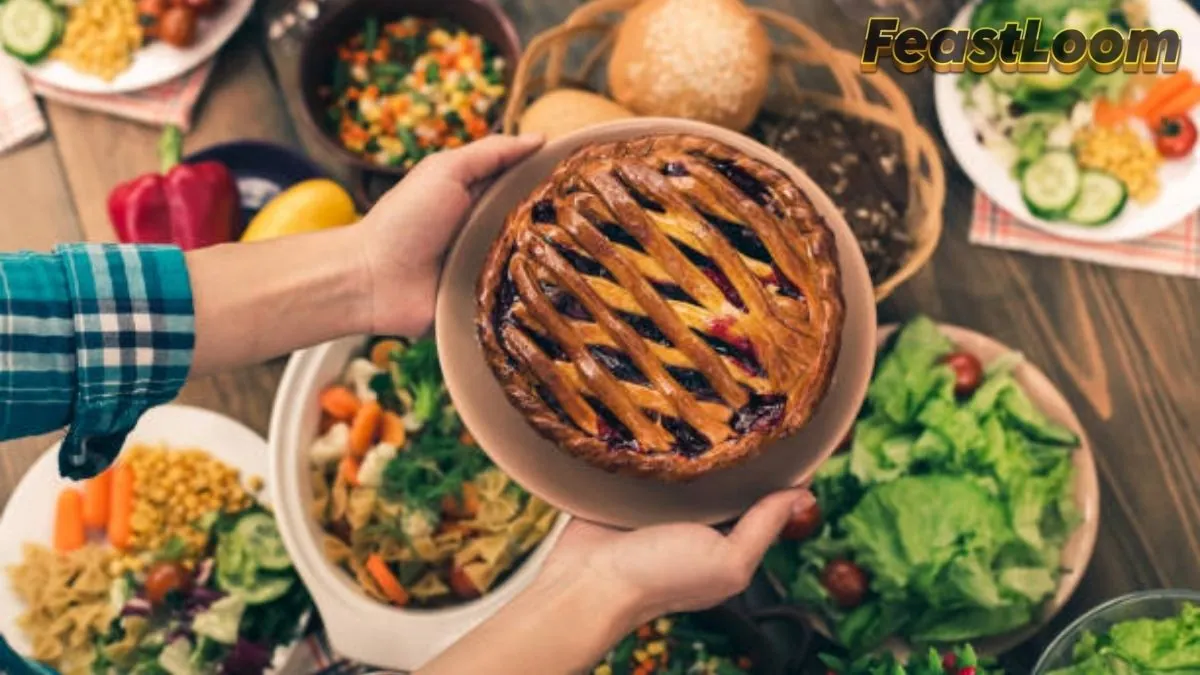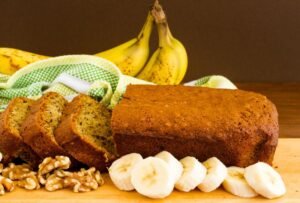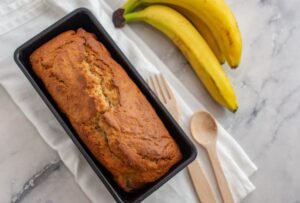How does overripe banana sugar content affect banana bread texture?

How does overripe banana sugar content affect banana bread texture?
Introduction
When it comes to making deliciously soft and moist banana bread, the ripeness of the banana used can play a significant role. With this in mind, a question often asked is ‘how does the sugar content of overripe bananas affect the texture of banana bread?’ In this article, we’ll delve deeper into this topic, exploring the science behind bananas’ sugar content, and how it influences the overall outcome of your banana bread. Get ready for a delightful culinary journey that will make your next baking experiment a sweet success.
Understanding The Sugar Content in Overripe Bananas
As bananas ripen, the starch content gradually breaks down into simple sugars. This process is observable through the increasing sweetness and softness of the fruit as it turns brown. These simple sugars, mainly consisting of glucose, fructose, and sucrose, are what gives overripe bananas their strong, sweet taste and moist texture. Also, these sugars undergo a reaction when heated, known as the Maillard Reaction, contributing to the banana bread’s brown color and unique flavor.
How Does Sugar Content Affect The Texture Of Banana Bread?
When baking banana bread, the sugar content in the overripe bananas significantly influences the final product’s texture. The transformation of starch into sugar gives the bananas a softer consistency perfect for adding moisture to the bread.
On a molecular level, sugar tends to absorb water. When mixed into a batter and baked, the sugar from overripe bananas helps retain moisture within the bread, making it moist and soft. Additionally, sugar’s ability to caramelize at high temperatures contributes to the deliciously crispy and browned crust of your banana bread.
Furthermore, the presence of sugar delays starch gelatinization – the process responsible for the ‘set’ or firm structure of baked goods. By slowing down the gelatinization of additional flour in the mix, the sugar in overripe bananas ensures your banana bread keeps a tender and soft texture instead of turning hard and dry.
Using Overripe Bananas for Better Banana Bread
Using overripe bananas in your banana bread recipe allows you to reap the benefits of the fruit’s increased sugar content, which can significantly accentuate the texture and taste of your bread.
Such bananas typically have a softer, almost squishy texture, making them easier to mash and mix into your batter. The result is a smooth, evenly distributed banana flavor throughout your bread. Additionally, overripe bananas add more natural sweetness to your recipe, potentially reducing the need for additional sweeteners.
Tips for Making Perfect Banana Bread
- Use overripe bananas: Bananas that are dark brown or even black are usually sweetest and are ideal for banana bread. If your bananas have not ripened, you can speed up the process by placing them in a paper bag for a day or two.
- Balance the sweetness: Since overripe bananas can be quite sweet, balance your recipe by reducing added sugars. You can also include ingredients like nuts or dark chocolate to counter the sweetness.
- Add a sour ingredient: The addition of a sour ingredient, like buttermilk or yogurt, can balance the excess sweetness provided by the bananas. Plus, they contribute to moistness and a fluffy texture.
- Test for doneness: Ensure your banana bread is thoroughly baked by inserting a toothpick into the center. If it comes out clean or with a few moist crumbs attached, your bread is done.
In conclusion, the sugar content of overripe bananas plays a crucial role in determining the texture and flavor of banana bread. Through its moisture-retaining properties and enhancement of sweetness, overripe bananas make for superior banana bread. So the next time you have some ripe bananas lying around, why not convert them into a delicious loaf of banana bread?

Learn More
Conclusão:
Conclusion
In conclusion, the sugar content in overripe bananas plays an integral role in determining the texture of banana bread. This is because during the baking process, the higher sugar content in overripe bananas caramelizes, providing the banana bread a moist, soft, and dense texture. Additionally, overripe bananas offer a stronger banana flavor, enhancing the overall taste of the bread. Their high sugar content omits the need for extra sugar, making your banana bread healthier. Therefore, using overripe bananas in your recipe not only enriches the bread’s flavor but also results in a deliciously moist texture. Keep this in mind next time you think about throwing away those overripe bananas!
FAQ:
FAQ
1. How does overripe bananas sugar content affect banana bread texture?
Overripe bananas have a higher sugar content which caramelizes during baking, resulting in a moist, more delicious banana bread.
2. Can I use just-ripe bananas for banana bread?
Yes, but the banana flavor and sugar content will not be as high as in overripe bananas, which could result in a less flavorful and moist bread.
3. How can I speed up the ripening process of bananas?
Store your bananas in a paper bag with an apple or tomato. These fruits emit ethylene gas that can speed up the ripening process.
4. How do I store overripe bananas if I’m not ready to bake?
You can peel and store them in a freezer-safe container or bag in the freezer until you’re ready to use them.
5. Can I add more sugar if I’m using just-ripe bananas?
Yes, you can, but keep in mind the added sugar will change the overall nutritional value of the bread.
6. Does overripe banana affect the baking time?
No, the baking time should remain the same regardless of the ripeness of your bananas.
7. Do bananas need to be black or can they just be spotted for banana bread?
Bananas do not need to be black for banana bread. Spotted bananas are also acceptable as they indicate a higher sugar content and softer texture.
How does overripe banana sugar content affect banana bread texture?

When you make purchases through the links available on our site, we may receive an affiliate commission at no additional cost to you.



